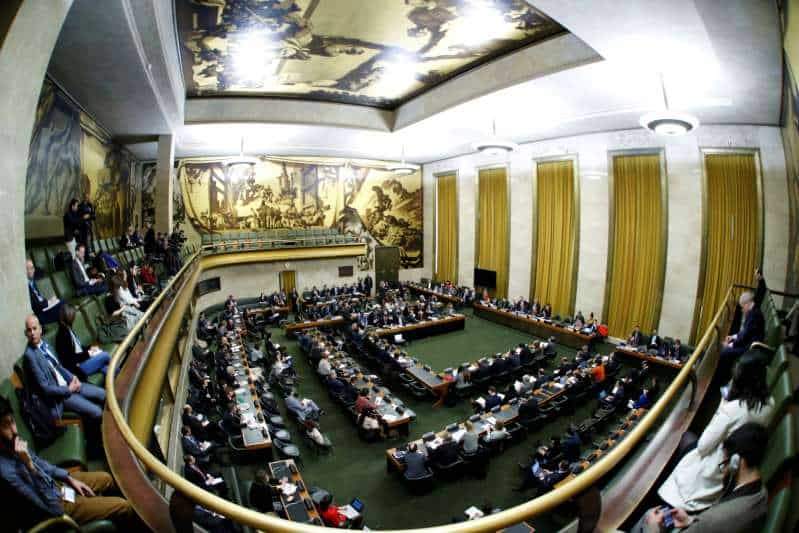Iran, Turkey block rivals from joining U.N. disarmament talks

Talks aimed at overcoming a years-long deadlock over disarmament at the United Nations began in acrimony on Tuesday with two countries blocking rivals from taking part in widely criticised manoeuvres that sparked concern about the forum's future.
Iran blocked Saudi Arabia and the United Arab Emirates from joining as observers, lashing out at the former's military record, while Turkey blocked Cyprus in a trend that marks a significant departure from normal U.N. protocol and might set a precedent for other bodies that operate on a consensus basis.
Iran's delegate said that Saudi Arabia had used the forum as a platform for a "distraction and disinformation campaign" and called Riyadh "the largest military offender in the region".
Saudi Arabia and the UAE, a close ally, intervened in Yemen's war in 2015 to fight the Iran-backed Houthi movement, while Turkey and Cyprus have long been at odds over the breakaway Turkish Cypriot state in the island's north.
Saudi Arabia's mission in Geneva did not immediately respond to a request for comment. Cyprus expressed "deep regret" at Turkey's decision.
"It is a sign that the Conference on Disarmament is at a crossroads and if it wants to remain relevant and useful it has to do some soul-searching," said Marc Finaud, former diplomat and security expert at the Geneva Centre for Security Policy.
Another diplomat called it a "new low" for the body while the Secretary-General of the Conference on Disarmament, Tatiana Valovaya, said she was "disappointed" with the way it had opened.
The blockages drew criticism from other members including Britain, the United States, European Union and India.
"If we are going to start picking and choosing then I think this will be the beginning of the end of multilateralism," British Ambassador Aidan Little told the virtual meeting. He urged Iran and Turkey to reverse their positions.
The two-month-long talks that began on Monday form part of the world's only multilateral forum for disarmament.
Diplomats' expectations for new deals in the 65-member forum are very low, with agreements often stymied by arms producers in a forum that makes decisions by consensus.
Its last major agreement was the 1996 Comprehensive Nuclear Test Ban Treaty.
Still, the conference's current president Belgium said on its Twitter feed on Monday that it hoped to set out a work programme "after too many years of deadlock".
It is not unheard of to block other U.N. members from observing U.N. forums although in the past these have pertained to decades-old sovereignty disputes.
Photo: Reuters/DENIS BALIBOUSE FILE PHOTO: The Conference on Disarmament in session at the United Nations in Geneva, Switzerland
Link: https://www.msn.com/en-us/news/world/iran-turkey-block-rivals-from-joining-un-disarmament-talks/ar-BB1cTpA2











